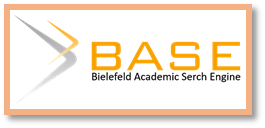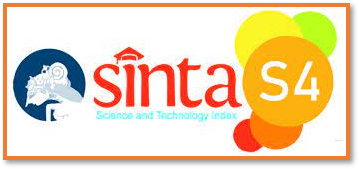Social Media Fatigue Management among Adolescents: Rapid Review
Abstract
Background: Fatigue is when the body feels tired, lethargic, and has no energy. Fatigue is a medical condition that can range from mild to severe. One form of fatigue is social media fatigue. This fatigue is experienced mainly by teenagers as active social media users. Purpose: This rapid review aims to determine which social media management can be implemented by teenagers to overcome fatigue. Methods: This study was a rapid review, in which the search for journal articles uses the PubMed, CINAHL, Google Scholar, Cochrane Library, and The Lancet databases with full-text inclusion criteria from 2012-2022 and in Indonesian and English and selected using PRISMA. Result: found five journal articles explaining several interventions, namely Fatigue In Teenagers on the Internet (FITNET), Cognitive Behavioral Therapy (CBT), Cognitive-Behavioral Group Therapy (CBGT), and family or parent counseling therapy. Conclusion: Social media fatigue can be managed to control internet use for internet addicts and teenagers with fatigue.
Full Text:
PDFReferences
Albers E, Nijhof LN, Berkelbach van der Sprenkel EE, van de Putte EM, Nijhof SL, Knoop H. Effectiveness of internet-based cognitive behavior therapy (fatigue in teenagers on the internet) for adolescents with chronic fatigue syndrome in routine clinical care: Observational study. J Med Internet Res. 2021;23(8):1–10.
Zhang Y, He W, Peng L. How Perceived Pressure Affects Users’ Social Media Fatigue Behavior: A Case on WeChat. J Comput Inf Syst. 2022;62(2):337–48.
Pustikasai A, Fitriyanti L. Stress dan zoom fatigue pada mahasiswa selama pembelajaran daring. J Ilmu K. 2021;13(1):25–37.
Rakhmawati W, Kosasih CE, Widiasih R, Suryani S, Arifin H. Internet Addiction Among Male Adolescents in Indonesia: A Qualitative Study. Am J Mens Health. 2021;15(3).
Dhir A, Talwar S, Kaur P, Budhiraja S, Islam N. The dark side of social media: Stalking, online self-disclosure and problematic sleep. Int J Consum Stud. 2021;45(6):1373–91.
Roos JM, Kazemi A. Personality traits and Internet usage across generation cohorts: Insights from a nationally representative study. Curr Psychol. 2021;40(3):1287–97.
Rahardjo W, Qomariyah N, Mulyani I, Andriani I. Social media fatigue pada mahasiswa di masa pandemi COVID-19: Peran neurotisisme, kelebihan informasi, invasion of life, kecemasan, dan jenis kelamin. J Psikol Sos. 2020;19(2):142–52.
Tricco AC, Antony J, Zarin W, Strifler L, Ghassemi M, Ivory J, et al. A scoping review of rapid review methods. BMC Med [Internet]. 2015;13(1). Available from: http://dx.doi.org/10.1186/s12916-015-0465-6
Nijhof SL, Priesterbach LP, Uiterwaal CSPM, Bleijenberg G, Kimpen JLL, Van De Putte EM. Internet-based therapy for adolescents with chronic fatigue syndrome: Long-term follow-up. Pediatrics. 2013;131(6).
Poort H, Onghena P, Abrahams HJG, Jim HSL, Jacobsen PB, Blijlevens NMA, et al. Cognitive Behavioral Therapy for Treatment-Related Fatigue in Chronic Myeloid Leukemia Patients on Tyrosine Kinase Inhibitors: A Mixed-Method Study. J Clin Psychol Med Settings [Internet]. 2019;26(4):440–8. Available from: http://dx.doi.org/10.1007/s10880-019-09607-5
Wang D, Wang S, Wang Q, Hou J, Li X, Zhang Z. Improving fatigue life of 7N01 Al alloy weld by surface spinning strengthening. Fatigue Fract Eng Mater Struct. 2021;44(10):2597–609.
Sulheim D, Fagermoen E, Winger A, Andersen AM, Godang K, Muller F, et al. Disease mechanisms and clonidine treatment in adolescent chronic fatigue syndrome a combined cross-sectional and randomized clinical trial. JAMA Pediatr. 2014;168(4):351–60.
Kizilbash SJ, Ahrens SP, Bruce BK, Chelimsky G, Driscoll SW, Harbeck-Weber C, et al. Adolescent fatigue, POTS, and recovery: A guide for clinicians. Curr Probl Pediatr Adolesc Health Care [Internet]. 2014;44(5):108–33. Available from: http://dx.doi.org/10.1016/j.cppeds.2013.12.014
Cho E. Therapeutic Interventions for Treatment of Adolescent Internet Addiction—Experiences from South Korea. 2017;247–61.
Alavi SS, Ghanizadeh M, Reza M, Jannatifard MF, Alamuti SE, Farahani M. The effects of cognitive-behavioral group therapy for reducing symptoms of internet addiction disorder and promoting quality of life and mental health. Qual Life Ment Heal Serv [Internet]. 2021;43(1):47–56. Available from: http://search.proquest.com/docview/61744265?accountid=27257%5Cnhttp://sfxit.ugent.be/sfx_hogent?url_ver=Z39.88-2004&rft_val_fmt=info:ofi/fmt:kev:mtx:journal&genre=conference&sid=ProQ:ProQ:socabs&atitle=Quality+of+Life+and+Mental+Health&title=International
VP M, Kumar S, WM P. Cognitive Behaviour Therapy in Treatment of Internet Addiction: Case Studies [Internet]. Anand N, Singh TB, editors. Month March; 2021. Available from: http://ojs.ijcp.co.in/index.php/ijcp/article/view/36
Anderson E, Gaunt D, Metcalfe C, Rai M, Hollingworth W, Mills N, et al. Investigating the effectiveness and cost-effectiveness of FITNET-NHS (Fatigue in Teenagers on the interNET in the NHS) compared to activity management to treat paediatric chronic fatigue syndrome (CFS)/myalgic encephalomyelitis (ME): Amendment to the published protocol. Trials. 2019;20(1):19–21.
Wolgensinger L. Cognitive behavioral group therapy for anxiety: Recent developments. Dialogues Clin Neurosci. 2015;17(3):347–51.
Kaczkurkin AN, Foa EB. Cognitive-behavioral therapy for anxiety disorders: An update on the empirical evidence. Dialogues Clin Neurosci. 2015;17(3):337–46.
Lazarov A, Marom S, Yahalom N, Pine DS, Hermesh H, Bar-Haim Y. Attention bias modification augments cognitive-behavioral group therapy for social anxiety disorder: A randomized controlled trial. Psychol Med. 2018;48(13):2177–85.
Kurniawan K, Khoirunnisa K, Casman C, Wijoyo EB, Azjunia AR. The Effectiveness of Social Support in Adolescents to Overcome Low Self-Esteem : Scoping Review. 2022;5(1):62–8.
DOI: http://dx.doi.org/10.30872/j.kes.pasmi.kal.v6i1.8566
Refbacks
- There are currently no refbacks.
Indexing by :










